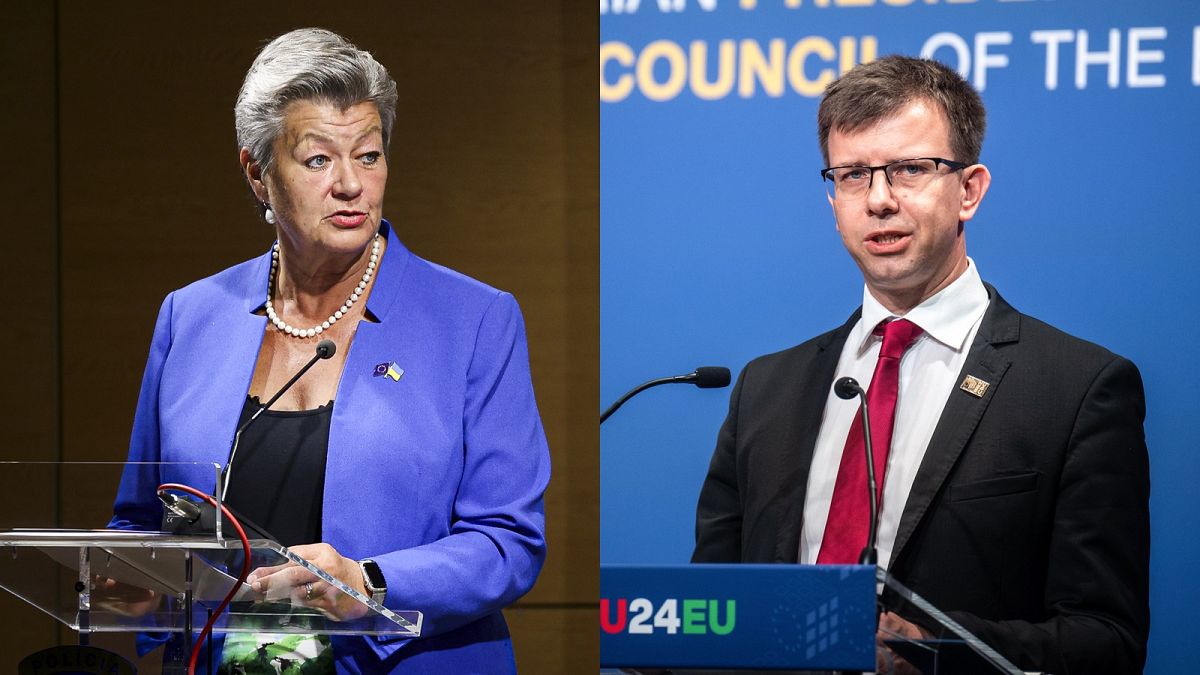The European Commission has sent a second letter to Hungary asking for further clarifications about its National Card scheme. The scheme, which started with Ukraine and Serbia, was extended to Russian and Belarusian citizens, raising security concerns. The European Commissioner for Home Affairs, Ylva Johansson, expressed concerns about including “hostile” nations in the scheme and potential security threats to the Schengen Area. The EU had suspended its visa facilitation agreement with Russia earlier, leading to a drop in visas issued for Russian nationals. The Commission is still looking into the answers provided by Hungary and has sent a second letter to clarify two aspects of the National Card scheme.
The extension of the National Card to Russian and Belarusian citizens was defended by Hungary’s Minister for European Affairs, János Bóka, who claimed it was necessary to alleviate labor shortages in the Hungarian market. Bóka insisted that the scheme was compatible with EU law and did not pose any security risks to Hungary or the EU. He dismissed criticisms as “political hysteria” and stated that the Commission should trust intelligence experts on matters of national security. Since the extension came into force, Hungary has granted a small number of permits to Russians and Belarusians, which was later used by Johansson to challenge the rationale behind the extension.
The European Parliament and certain member states have raised concerns that Hungary’s recent actions “may constitute a serious security risk.” The tensions between Brussels and Budapest come amid a €200 million fine imposed by the European Court of Justice, which Hungary has refused to pay. The clash over the National Card scheme highlights the differing perspectives on national security and the management of foreign workers. The Commissioner emphasized the need for vigilance and security in the Schengen Area, while Hungary defended its decision as necessary for economic reasons.
The Commission is seeking further clarifications from Hungary on the extension of the National Card scheme to Russian and Belarusian citizens. The deadline to reply is 11 September, and the Commission is waiting to finalize its internal assessment before considering any legal action. The differing views on security risks and economic benefits associated with the scheme have led to a heated exchange between Brussels and Budapest. The extension was defended by Hungary as a measure to attract foreign workers and ease labor shortages in the Hungarian market, but the small number of permits granted has raised questions about the rationale behind the decision.
The European Commissioner for Home Affairs raised concerns about including Russia and Belarus in the National Card scheme and highlighted potential security threats to the Schengen Area. The EU had suspended its visa facilitation agreement with Russia earlier, leading to a significant drop in visas issued for Russian nationals. The tensions between Brussels and Budapest underscore the challenges of balancing economic interests with security considerations in the context of the National Card scheme. Hungary defended its decision as necessary for addressing labor shortages and dismissed criticisms as “political hysteria.” The clash over the scheme reflects broader disagreements on national security and the handling of foreign workers in the EU.








